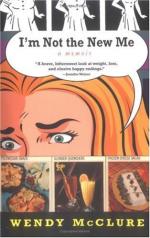I finished my breakfast in some perplexity of spirit. Then I went and sat in the hall, expecting that Euphrosyne would appear from her room before long. I was alone, for the rest were engaged in various occupations, Hogvardt being particularly busy over a large handful of hunting-knives that he had gleaned from the walls; I did not understand what he wanted with them, unless he meant to arm himself in porcupine fashion.
Presently Euphrosyne came, but it was a transformed Euphrosyne. The kilt, knee breeches, and gaiters were gone; in their place was the white linen garment with flowing sleeves and the loose jacket over it, the national dress of the Greek woman; but Euphrosyne’s was ornamented with a rare profusion of delicate embroidery, and of so fine a texture that it seemed rather like some delicate, soft, yielding silk. The change of attire seemed reflected in her altered manner. Defiance was gone and appeal glistened from her eyes as she stood before me. I sprang up, but she would not sit. She stood there, and, raising her glance to my face, asked simply: “Is it true?”
In a business-like way I told her the whole story, starting from the every-day scene at home in the restaurant, ending with the villainous conversation and the wild chase of the night before. When I related how Constantine had called Francesca his wife, Euphrosyne shivered; while I sketched lightly my encounter with him and Vlacho, she eyed me with a sort of grave curiosity; and at the end she said: “I’m glad you weren’t killed.” It was not an emotional speech, nor delivered with any empressement; but I took it for thanks, and made the best of it. Then at last she sat down and rested her head on her hand. Her absent air allowed me to study her closely, and I was struck by a new beauty which the bizarre boy’s dress had concealed. Moreover, with the doffing of that, she seemed to have put off her extreme hostility; but perhaps the revelation I had made to her, which showed her the victim of an unscrupulous schemer, had more to do with her softened air. Yet she bore the story firmly, and a quivering lip was her extreme sign of grief or anger. And her first question was not of herself.
“Do you mean that they will kill this woman?” she asked.
“I’m afraid it’s not unlikely that something will happen to her, unless, of course—” I paused, but her quick wit supplied the omission.
“Unless,” she said, “he lets her live now, because I am out of his hands.”
“Will you stay out of his hands?” I asked. “I mean, as long as I can keep you out of them.”
She looked round with a troubled expression.
“How can I stay here?” she said in a low tone.
“You will be as safe here as you were in your mother’s arms,” I answered.
She acknowledged my promise with a movement of her head; but a moment later she cried:
“But I am not with you—I am with the people! The island is theirs and mine. It is not yours. I will have no part in giving it to you.”




